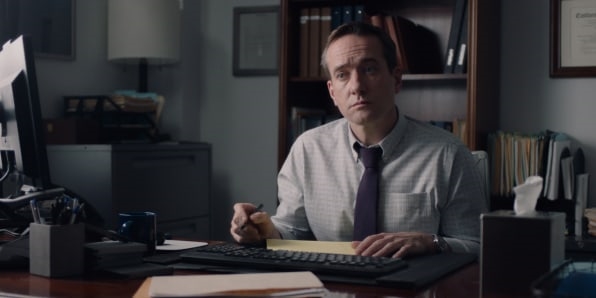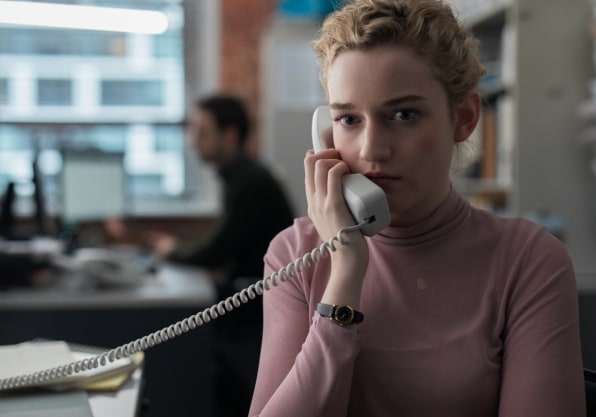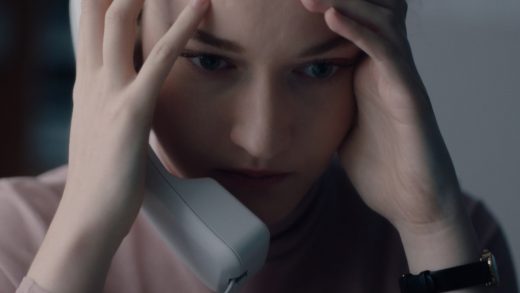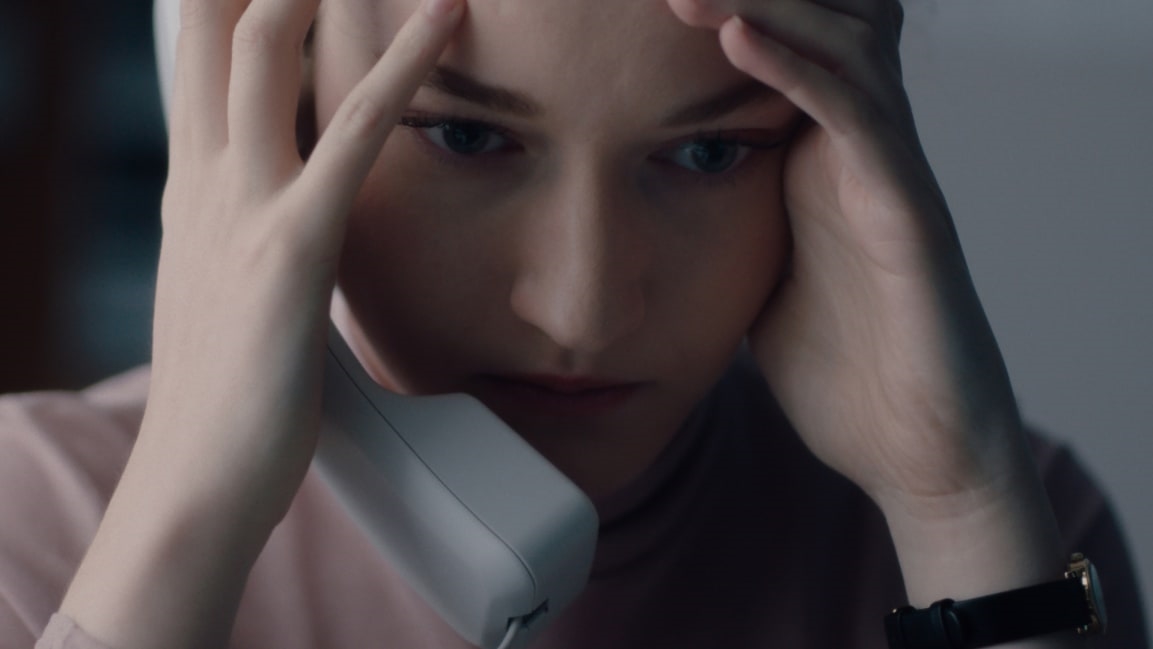Julia Garner on combating an abusive, Weinstein-like boss in ‘The Assistant’
The Assistant marks one of the first narrative films to spring directly from the allegations against Harvey Weinstein that triggered the MeToo movement.
But for anyone expecting a cinematic exposé with sweeping feminist monologues or an on-screen villain to serve as a proxy for real-life transgressors, that’s not The Assistant‘s angle. The film’s dialogue is minimal, and the main antagonist never actually shows his face.
However, it’s in that quietness that the film is able to scream volumes.
“It’s more of an internal film than an external film,” says Emmy-winning actor Julia Garner, who stars as the movie’s unlikely heroine. “But it was really important for it to be a quiet film because the subject matter is not quiet at all. It’s actually very loud. So that contrast is really interesting.”
Directed by Kitty Green (Casting JonBenet), The Assistant stars Garner as Jane, an assistant to a top movie producer in New York City. What starts as a mundane day of making copies and answering phones slowly devolves into a personal and professional crisis. As Jane begins to piece together clues to what her boss does behind closed office doors and in hotel room meetings, she’s faced with the choice of speaking out against the chief as the lowest person on the totem pole or staying silent and complicit.
Jane is never the target of unwanted sexual advances, which gives the film a compelling framework: By hitching the audience to a lowly assistant instead of making her more of a direct victim, we’re able to see, from an internal point of view, how toxic workplace behavior at the top infects everyone below in a different way.
“The movie is not only about sexual assault against women in workplaces—it’s about abuse in general,” Garner says. “The abuser is abusing everyone to the point where if they’re not being abusive or if they’re being kind or fair, they’ll get fired. Everyone was getting abused in the movie and they didn’t even know it.”
There are the coworkers sitting next to Jane who, speaking in tones that suggest they’ve done this time and time again, coach Jane on how to craft the perfect apology to their boss when she doesn’t properly smooth things over with his irate wife who won’t stop calling the office. Or one producer who’s visibly shaken but quietly resigns himself to whatever’s in store when Jane tells him the boss wants him on an upcoming trip. And then there’s Jane’s encounter with the head of HR (played by Succession‘s Matthew Macfadyen) that serves as the film’s quiet burn of a climax.

[Photo: Ty Johnson/Bleecker Street]
“It was so important, the blocking of [the scene] emotionally because I had to be like, okay, I’m fine with this. I’m okay. I’m kind of like cracking a little bit. Okay, I’m really cracking and then completely spinning out and losing control,” Garner says. “You’re seeing her deteriorate throughout the day in a way.”
The Assistant presented Garner with a unique challenge of matching her performance to the tone of the film, a repressed frustration that never boils over despite the heat constantly dialing up. Unlike Garner’s firecracker character Ruth from Ozark, Jane can’t level guys who stand in her way. But to pull off playing Jane, Garner took the energy of Ruth and turned it inward.

“You’re always taught to never hold back as an actor. And playing Ruth, you really cannot hold back. I mean, the crazier, the better,” Garner says. “And it was very useful for The Assistant because it’s a very intense movie, and that intensity was so key because the movie is so quiet. But I wasn’t treating it like it was a quiet film.”
There will undoubtedly be more films to come that respond to Weinstein and other powerful, abusive men in the industry. The Assistant may not be the most conventional takedown of those toxic power structures, but that, in many ways, makes it all the more effective.
“I hope that this film helps in a way,” Garner says. “I don’t know how it’s going to help, but I hope it does.”
The Assistant is in theaters January 31.
(32)



